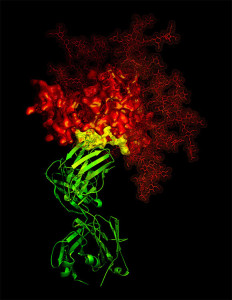 Healthcare is in the midst of a third wave of digital evolution. Health and wellness wearables, remote patient monitoring and other health technologies powered by the Internet of Things (IoT) are influencing every stage of the care process. From diagnosis to post-discharge, these new tools will soon enable doctors and clinicians everywhere to deliver higher quality, more advanced care to patients.
Healthcare is in the midst of a third wave of digital evolution. Health and wellness wearables, remote patient monitoring and other health technologies powered by the Internet of Things (IoT) are influencing every stage of the care process. From diagnosis to post-discharge, these new tools will soon enable doctors and clinicians everywhere to deliver higher quality, more advanced care to patients.
We’ve highlighted a handful of the most promising smart health devices and apps currently in development.
1. This mobile IoT platform is making cancer diagnosis testing a pain free experience for patients. The technology is still in the clinical trial phase, but it won’t be long till clinicians and perhaps patients are administering these tests inside and outside of the hospital setting.
Source: mobihealth news
2. Of the 270,000 people who die from cervical cancer, 85% are from developing countries. This Israel-based startup is transforming the average smartphone into a colposcope that can be used to affordably deliver cancer screenings.
Source: Huffington Post
3. Apple isn’t the only consumer electronics provider venturing into building a digital health platform for developers in healthcare to leverage. Samsung is progressing healthcare’s digital evolution one step further by launching its Industrial IoT platform.
Source: mHealth news
4. Wearable devices may be the key to catching Parkinson’s at an early stage. Intel and the Michael J. Fox Foundation’s joint project aims to improve medical professionals’ understanding of how Parkinson’s impacts patients on a daily basis. Patients will be given wearable devices that will monitor their activity and link to a smartphone app.
Source: mHealth news
5. This Internet of Things powered clinical monitoring solution captures patient data using wireless biosensors that enables clinicians to detect early stage symptoms of SEPSIS, one of the nation’s most deadly diseases.
Source: CIO
6. Penn Medicine’s large scale predictive analytics platform, Penn Signals, is using historical medical records to predict whether patients are at risk for developing certain diseases and deliver alerts to clinicians.
Source: Information Week
Now is the time for digital health entrepreneurs to invest in developing smart mobile and medical device based IoT solutions. Many of these technologies are in the early development stages such that their potential ROI and cost savings are still being proven. Smart healthcare startups that are able to establish their product value before the market’s inevitable expanse will reap many first mover advantages.
Suggested further reading on IoT
-
Practical Guide to Building Industrial Internet of Things Solution
-
Making Medical Equipment Smart to Improve Data Accessibility & Security

